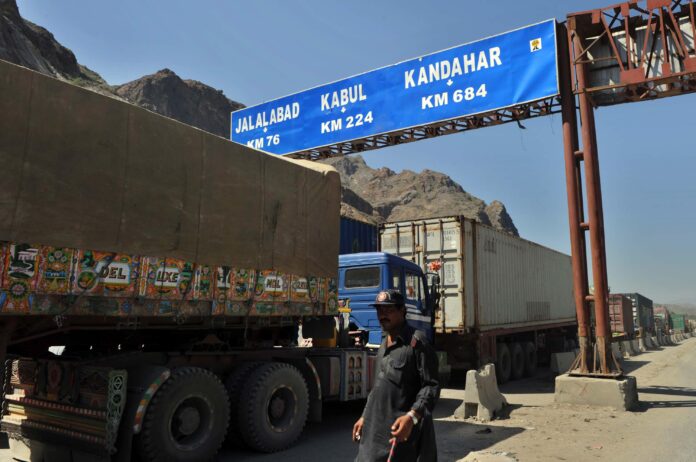ISLAMABAD: Adviser to Prime Minister for Commerce and Investment, Abdul Razak Dawood on Monday informed that first-ever shipment from Pakistan under Transports Internationaux Routiers (TIR) reached Tashkent, Uzbekistan in 48 hours from Torkham, Pakistan.
“A milestone has been achieved in Pakistan’s transit trade history as Pakistan Customs processed the first-ever TIR consignment,” Dawood said, adding that that connectivity with trading partners is vital for viable trade relations.
The adviser said that Pakistan’s long-term vision for trade and economic relations with Afghanistan, Uzbekistan and Central Asian Republics (CARs) was to make Pakistan a hub for trade, transit and transshipment.
He said that the structure and efficiency connectivity networks enable access to markets and should be considered a facet of the trade competitiveness.
He said this will ensure that Pakistan leverages its geo-economic location in the region to enhance its international trade.
He said that the current engagement with Afghanistan and Uzbekistan, are steps towards implementation of this vision.
The consignment consisted of herbal medicines crossed into Afghanistan after completion of all custom formalities at Torkham.
This successful TIR operation will usher a new era of direct land-route trade with the CARs.
Use of the TIR system will streamline border procedure cutting time and money for trade and transport operators.
The Customs Convention on the International Transport of Goods under Cover of TIR Carnets, called the TIR Convention, came into force in March 1978 and it replaced the original Transport Internationaux Routier (TIR) of 1959.
Pakistan became a member of TIR Convention in 2017 and now the convention has 68 contracting parties including China, Afghanistan, Iran, Turkey and all CARs.
The objective of the TIR Convention is to facilitate international transit through simplified Customs transit procedures and an international guarantee system.
Customs procedure takes place at origin and destination rather than at each border crossing using a single guarantee.
























